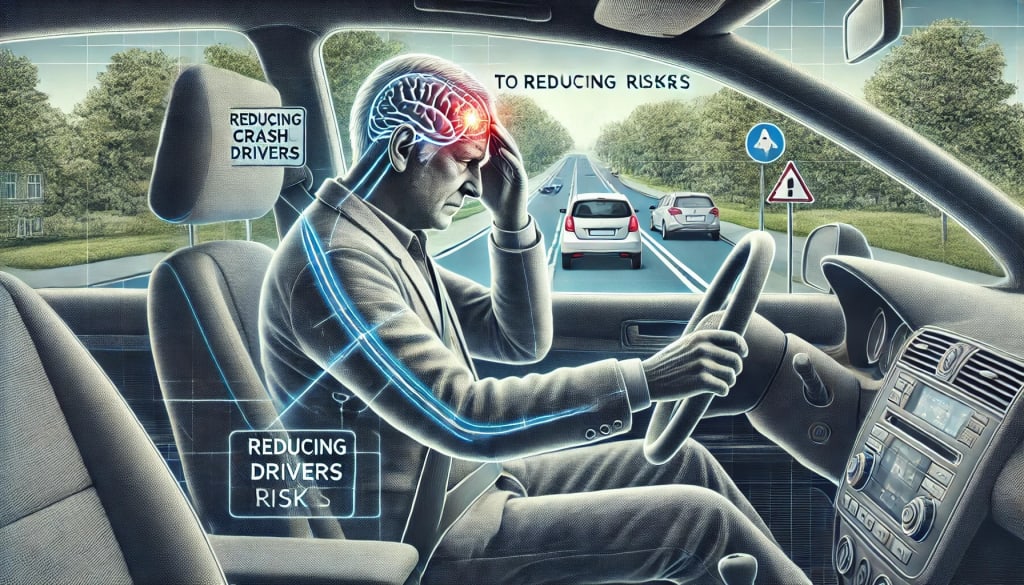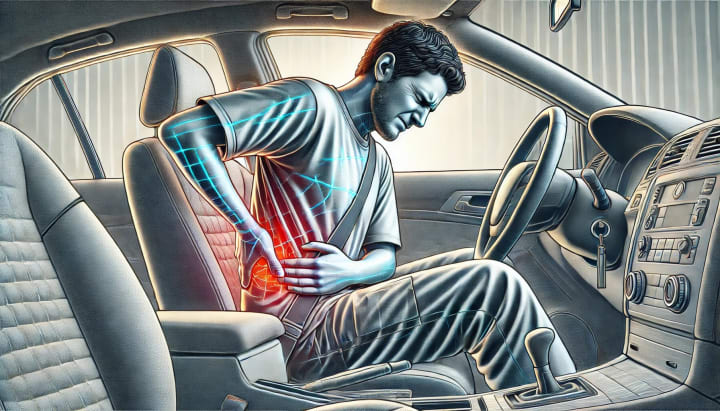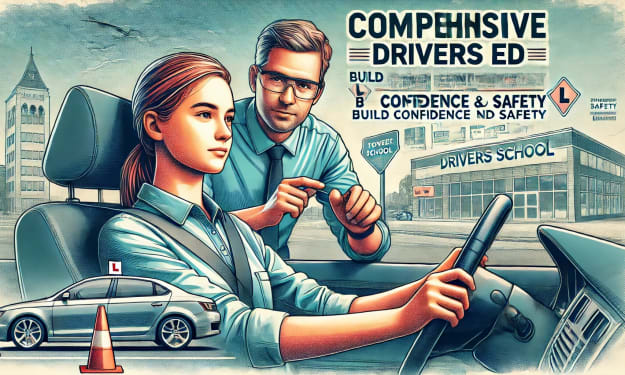Migraines and Older Drivers: Reducing Crash Risks
Migraines Could Raise Crash Risks for Older Drivers

Driving requires full attention, quick reflexes, and sound judgment—all of which can be compromised by health issues. One significant health concern that can affect driving abilities, particularly for older adults, is migraines. Research indicates that migraines could raise crash risks for older drivers, making it crucial for them to be aware of the potential dangers and take appropriate measures to ensure their safety on the road. At Get Drivers Ed, we emphasize the importance of understanding how health conditions can impact driving and offer comprehensive drivers ed programs to help all drivers stay safe.
The Impact of Migraines on Driving
Migraines are intense headaches often accompanied by symptoms such as nausea, vomiting, and sensitivity to light and sound. For older drivers, these symptoms can significantly impair their ability to drive safely. Here are some ways migraines can affect driving:
1.Visual Disturbances

Migraines can cause visual disturbances, such as blurred vision or auras, which can obstruct a driver’s view of the road. This can make it difficult to see other vehicles, pedestrians, and traffic signals, increasing the risk of accidents.
2.Impaired Cognitive Function

During a migraine attack, cognitive functions such as decision-making, concentration, and reaction time can be impaired. This can make it challenging for drivers to process information quickly and respond appropriately to changing road conditions.
3.Physical Discomfort

The intense pain and physical discomfort caused by migraines can distract drivers and make it difficult for them to focus on the task of driving. This can lead to erratic driving behavior and increased crash risks.
4.Sensitivity to Light and Sound

Migraine sufferers often experience heightened sensitivity to light and sound, which can be exacerbated by the bright lights and noises on the road. This can cause discomfort and distraction, further compromising driving safety.
Strategies for Managing Migraines While Driving
While migraines can pose significant challenges for older drivers, there are strategies that can help manage the symptoms and reduce crash risks. Here are some tips from Get Drivers Ed to help older drivers with migraines stay safe on the road:
Know Your Triggers:
Understanding and avoiding migraine triggers can help prevent attacks. Common triggers include certain foods, stress, lack of sleep, and changes in weather. Keeping a migraine diary to track triggers and symptoms can be helpful.
Plan Ahead:
If you know you are prone to migraines, plan your driving schedule to avoid times when you are most likely to experience an attack. Avoid driving during peak traffic hours or in adverse weather conditions if possible.
Take Breaks:
During long drives, take regular breaks to rest and manage symptoms. Find a safe place to pull over if you start to feel a migraine coming on. Resting for a few minutes can help alleviate symptoms and reduce the risk of an accident.
Use Sunglasses:
Wearing sunglasses can help reduce sensitivity to light, which is a common migraine trigger. Polarized sunglasses can minimize glare from the sun and headlights, making it easier to focus on the road.
Keep Emergency Medication Handy:
Always carry your migraine medication with you when driving. Taking your medication at the first sign of a migraine can help manage symptoms and prevent them from worsening.
Avoid Driving During an Attack:
If you are experiencing a migraine attack, it is best to avoid driving altogether. Arrange for an alternative mode of transportation, such as a taxi or a ride from a friend or family member, to ensure your safety and the safety of others on the road.
The Role of Drivers Ed in Promoting Safe Driving
At Get Drivers Ed, we recognize the importance of educating drivers about the impact of health conditions like migraines on driving safety. Our comprehensive drivers ed program includes modules on health and wellness, teaching students how to manage their health effectively to stay safe on the road. Here’s how our program can help:
In-Depth Health Education:
Our drivers ed curriculum includes information on various health conditions, including migraines, and their potential impact on driving. We educate students on how to recognize symptoms, manage their health, and make safe driving decisions.
Personalized Instruction:
Our experienced instructors provide personalized guidance to help students understand how their health can affect their driving. They offer practical tips and strategies for managing health conditions while driving, ensuring that each student receives the support they need.
Emphasis on Safe Driving Practices:
We emphasize the importance of safe driving practices, including defensive driving techniques and hazard recognition. Our program teaches students how to stay alert and react appropriately to various driving scenarios, reducing the risk of accidents.
Flexible Learning Options:
Understanding that health conditions can affect learning, we offer flexible learning options, including online courses and weekend classes. This allows students to complete their drivers ed training at a pace that suits their needs and circumstances.
Conclusion: Drive Safely with Get Drivers Ed
Migraines can significantly increase crash risks for older drivers, making it essential to manage symptoms and adopt safe driving practices. At Get Drivers Ed, we are committed to helping drivers of all ages understand the impact of health conditions on driving and providing the tools and knowledge needed to stay safe on the road. Enroll in our drivers ed program today to learn more about how to drive safely with migraines and other health conditions. Visit Get Drivers Ed to get started.
About the Creator
Get Drivers Ed
Discover expert tips, driving safety insights, and the latest trends from Get Drivers Ed. Your online guide to mastering the road. Learn, drive, and lead!






Comments
There are no comments for this story
Be the first to respond and start the conversation.